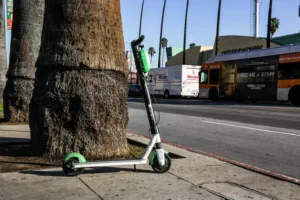With the surge in popularity of electric scooters as a sustainable mode of urban transportation, cities and countries around the world have been adapting regulations to ensure the safe integration of these vehicles into existing traffic frameworks.
This article serves as a guide to understanding electric scooter regulations, providing riders with the knowledge needed to navigate the streets responsibly and lawfully.
Local Variations in Regulations
Electric scooter regulations vary significantly from one location to another. Cities, states, and countries often have their own set of rules governing the use of electric scooters.
It is crucial for riders to familiarize themselves with the specific regulations in their area to avoid legal complications.
Age and Licensing Requirements
Many regions impose age restrictions on electric scooter riders. Additionally, some areas require riders to hold a valid driver’s license or a special permit to operate an electric scooter on public roads. Understanding these requirements is essential to ensure compliance with local laws.
Helmet Usage
Helmet regulations for electric scooters differ based on location. While some areas mandate helmet use for all riders, others may require helmets only for specific age groups or under certain circumstances. Riders should always prioritize safety and adhere to helmet regulations in their respective regions.
Speed Limits
Speed limits for electric scooters are often specified in regulations. In urban areas, limits may be lower to ensure the safety of riders and pedestrians. It is imperative for riders to be aware of and adhere to these speed restrictions to prevent accidents and legal issues.
Designated Riding Areas and Sidewalk Usage
Regulations often define where electric scooters can be ridden. Some cities allow scooters on bike lanes, while others restrict them to the road. Riding on sidewalks may be prohibited in certain areas. Understanding these guidelines helps riders navigate safely and avoids potential conflicts with pedestrians.
Parking and Docking Requirements
Regulations also address where electric scooters can be parked. Some cities have designated parking zones or docking stations, while others require scooters to be parked in specific areas. Knowing the parking regulations helps prevent clutter and ensures a more organized urban landscape.
Insurance and Liability
In some regions, riders may be required to have insurance coverage for their electric scooters. Understanding the insurance and liability requirements is essential to protect both riders and pedestrians in the event of an accident.
Conclusion
As electric scooters become an integral part of urban mobility, staying informed about local regulations is crucial for riders.
Adhering to these rules not only ensures the safety of riders and pedestrians but also contributes to the overall harmonious integration of electric scooters into the existing transportation infrastructure.
Always check and follow local regulations to enjoy a safe and legal electric scooter experience.



